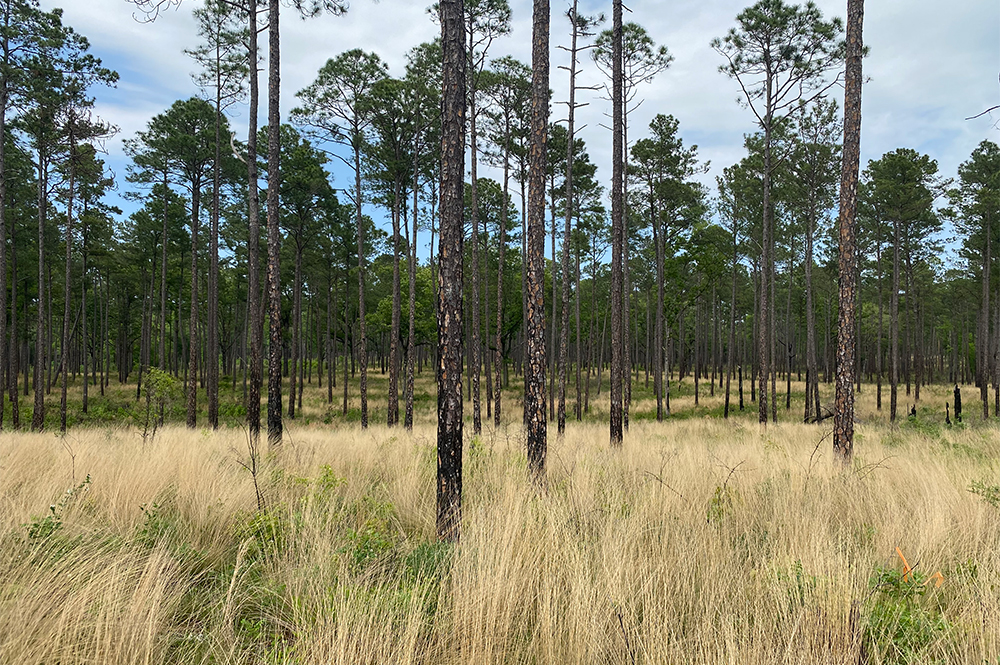By Burch Barger
Social distancing requirements have shifted the work of Christi Lambert, Georgia Coastal and Marine Conservation Director for The Nature Conservancy, but they have not slowed it. Her spring calendar normally would be filled with outreach events and gatherings along the coast, including the Arts & Science Forum, Stewards of the Georgia Coast field trips, and coastal resilience workshops and training sessions. Instead, she is planning virtual events, working with colleagues to update their three-year strategic plan, and collaborating with partners to protect oceans, lands, and waters.
Field operations continue for Christi’s Conservancy colleagues who actively steward the 395,000 acres protected by the organization across the state of Georgia. Prescribed fire operations, ecological monitoring, and tree planting efforts are compatible with social distancing guidelines and, therefore, are moving forward when possible. The Nature Conservancy’s virtual tour of Moody Forest Preserve, located up the Altamaha and just north of Baxley, provides a glimpse at how those ongoing land management practices benefit species and habitats from gopher tortoise and old growth longleaf pine forests to river swamp and rare mussels.
As children and parents adapt to learning from home, The Nature Conservancy offers a wealth of online resources in its Nature Lab, a youth curriculum platform designed to “help students learn the science behind how nature works for us and how we can help keep it running strong.” Additionally, the Nature Lab offers a collection of virtual field trips that highlight the Conservancy’s work to preserve and protect threatened places and species around the world.
Christi and her colleagues continue to plan and dream big for the Georgia Coast, working with partners to identify ways to reduce the risk of coastal hazards to residents using natural infrastructure, living shorelines, and protected wetlands and floodplains. In Camden County, The Nature Conservancy is addressing community vulnerability and risk of flooding through Flood Risk Awareness and Decision Support Tools. In Glynn County, plans remain underway for the Altama Gateway — a center for stewards to gather, plan, and train for conservation, land and water management, and coastal resources education. Planning, monitoring, engineering, and permitting continue for the two newest living shoreline projects, Little Cumberland Island and Honey Creek Episcopal Center. Donor support for these efforts is much needed and appreciated. To contribute, please contact Brian Wills, Senior Associate Director of Development for The Nature Conservancy in Georgia, at bwills@tnc.org or (404) 403-9777.

